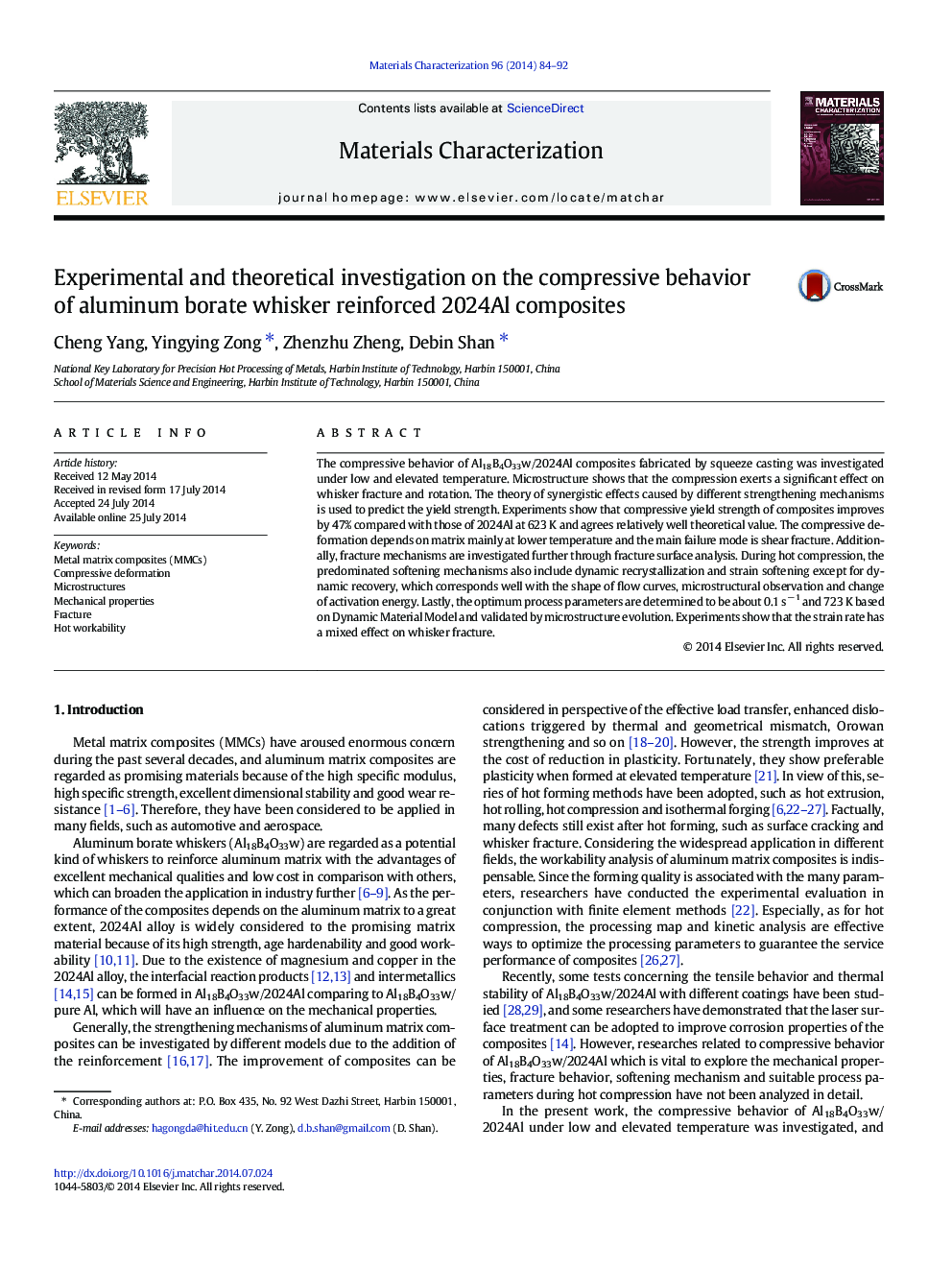| Article ID | Journal | Published Year | Pages | File Type |
|---|---|---|---|---|
| 1571047 | Materials Characterization | 2014 | 9 Pages |
Abstract
The compressive behavior of Al18B4O33w/2024Al composites fabricated by squeeze casting was investigated under low and elevated temperature. Microstructure shows that the compression exerts a significant effect on whisker fracture and rotation. The theory of synergistic effects caused by different strengthening mechanisms is used to predict the yield strength. Experiments show that compressive yield strength of composites improves by 47% compared with those of 2024Al at 623 K and agrees relatively well theoretical value. The compressive deformation depends on matrix mainly at lower temperature and the main failure mode is shear fracture. Additionally, fracture mechanisms are investigated further through fracture surface analysis. During hot compression, the predominated softening mechanisms also include dynamic recrystallization and strain softening except for dynamic recovery, which corresponds well with the shape of flow curves, microstructural observation and change of activation energy. Lastly, the optimum process parameters are determined to be about 0.1 sâ 1 and 723 K based on Dynamic Material Model and validated by microstructure evolution. Experiments show that the strain rate has a mixed effect on whisker fracture.
Keywords
Related Topics
Physical Sciences and Engineering
Materials Science
Materials Science (General)
Authors
Cheng Yang, Yingying Zong, Zhenzhu Zheng, Debin Shan,
